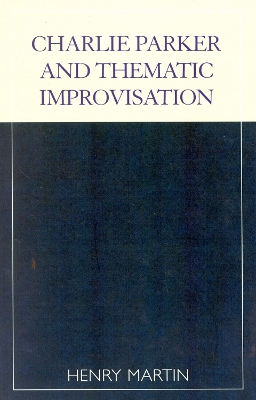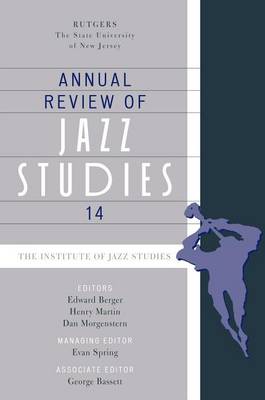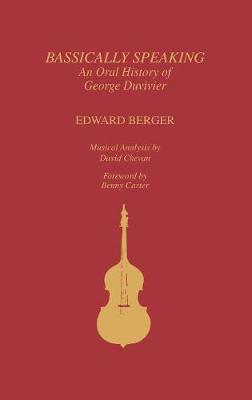Studies in Jazz
1 primary work • 3 total works
Book 24
Martin provides a new overall assessment of the importance of Charlie Parker through an analysis of his improvisations in a variety of genres. Earlier studies of Parker argue that his style is based on an extensive network of melodic formulas that are combined to create solos. Because the same formulas appear throughout his improvisations regardless of the theme, these studies concluded that the solos do not usually relate to the original melodies. Charlie Parker and Thematic Improvisation provides a much-needed reassessment by showing that Parker's solos are often related to the original themes in unexpected and sometimes ingenious ways. The conclusion sums up features of Parker's style and discusses his contribution in the context of Western music history. Numerous transcriptions are provided. This groundbreaking technical study will be of interest to musicologists and serious students of jazz.
Annual Review of Jazz Studies
by Edward Berger, Henry Martin, and Dan Morgenstern
Published 1 June 2009
The Annual Review of Jazz Studies (ARJS) is a journal providing a forum for the ever expanding range and depth of jazz scholarship, from technical analyses to oral history to cultural interpretation. Addressed to specialists and fans alike, all volumes include feature articles, book reviews, and unpublished photographs. This 14th issue contains four intriguing articles that to some degree contravene accepted precepts of jazz orthodoxy. John Howland traces the connection between Duke Ellington's extended works and the 'symphonic jazz' model of the 1920s as exemplified by Paul Whiteman and his chief arranger, Ferde GrofZ. Horace J. Maxile Jr. takes an unfashionably broad perspective of Charles Mingus's 'Ecclusiastics, ' applying recent developments in cultural theory as well as the formal tools of traditional music theory. Brian Priestley's exploration of the ties between Charlie Parker and popular music challenges the canonical depiction of Parker as a lone revolutionary genius, instead underscoring the saxophonist's ties to the popular music of his time. Finally, John Wriggle presents an extensive examination of the life and work of arranger Chappie Willet, an unsung hero of the Swing Era. The book reviews cover a cross-section of the burgeoning jazz literature, and Vincent Pelote has again compiled a list of books received at the Institute of Jazz Studies
"Both as a person and as a musician, he was number one in my book." -Benny Carter Bassist George Duvivier (1920-1985) was one of the most universally respected musicians in jazz. His impeccable musicianship graced the big bands in the 1940s and led to musical associations with virtually every important jazz and popular artist. His prolific recording career spanned all styles of music, from Eubie Blake to Eric Dolphy, Billie Holiday to Barry Manilow. Duvivier was a most astute and articulate observer of the musical scene. A large part of this book is devoted to his own reflections on growing up in Harlem in the 1920s and 1930s, the evolution of the bass, life in the commercial studios, and his memories of close associates-Coleman Hawkins, Jimmie Lunceford, Bud Powell, Lena Horne, and many others. In addition, twenty of Duvivier's colleagues, including Louie Bellson, Ron Carter, Milt Hinton, Ed Shaughnessy, Arthur Taylor, and Joe Wilder, have contributed, covering a variety of musical and social issues, as well as providing a loving portrait of an extraordinary artist. Duvivier's musical style is discussed by David Chevan, who has included transcriptions of several solos. An extensive discography/solography traces Duvivier's incredibly diverse recording career. With dozens of previously unpublished photos.


